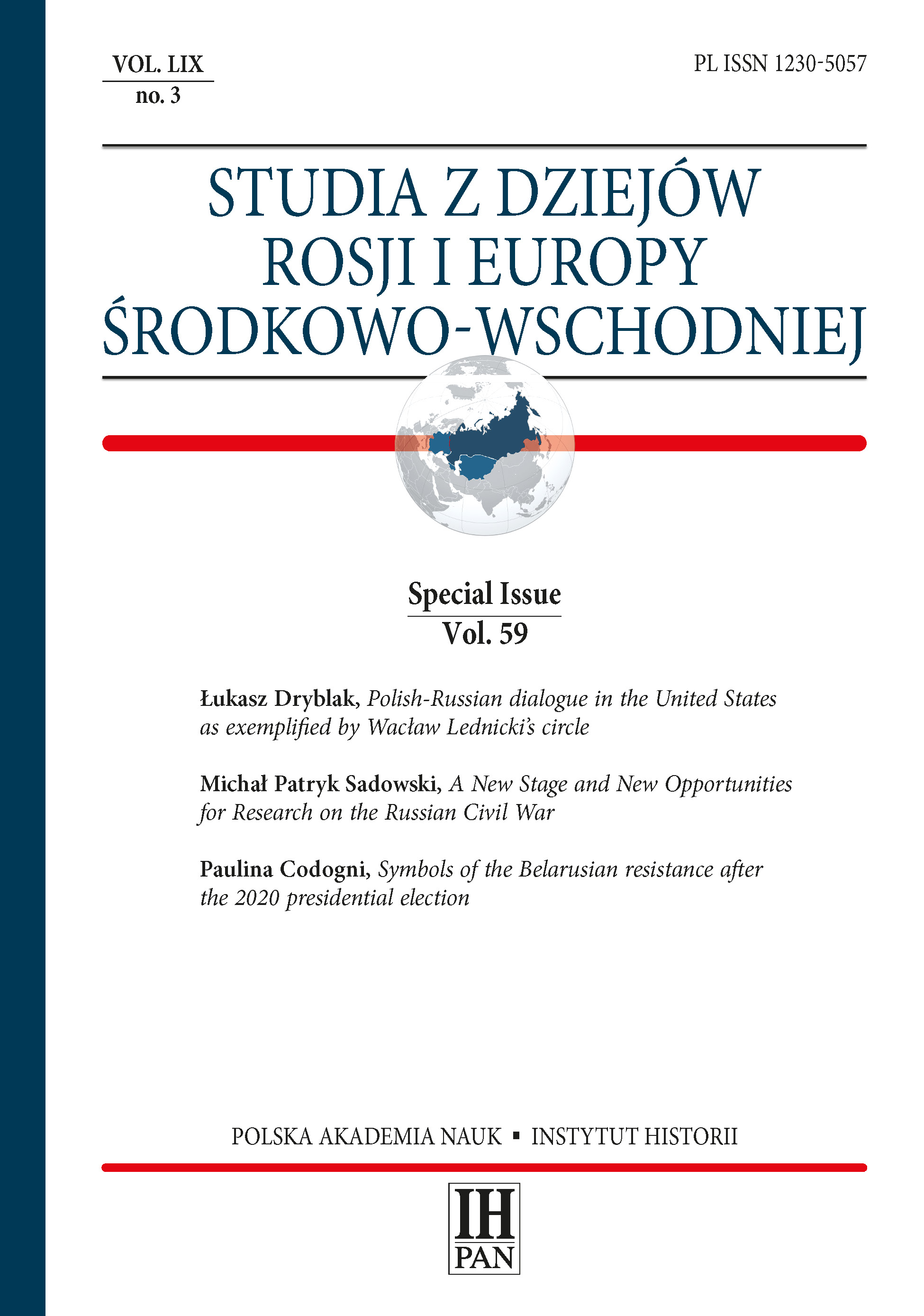Economic and Social Transformations in the Caspian ‘Rentier States’
DOI:
https://doi.org/10.12775/SDR.2024.EN8.08Słowa kluczowe
państwa kaspijskie, państwo-rentier, paradoks bogactwa, transformacja gospodarcza, transformacja społecznaAbstrakt
Artykuł porusza kwestię różnych wyzwań i uwarunkowań transformacji ekonomicznej i społecznej poradzieckich państw regionu kaspijskiego. Efektywna transformacja gospodarcza była tu ograniczona znacznym uzależnieniem w tym wymiarze od Rosji oraz brakiem współpracy regionalnej. W ostatnich latach nowo powstałe państwa regionu w dużej mierze koncentrowały się na eksporcie surowców energetycznych. Państwa regionu kaspijskiego są tym samym przykładem zjawiska “paradoksu bogactwa” w związku z nacjonalizmem energetycznym. Państwa produkujące surowce kontrolują branżę energetyczną, która umożliwia im realizację określonych celów politycznych i społecznych.
Bibliografia
Akiner S., ‘Political Processes in Post-Soviet Central Asia’, in: Central Eurasia in Global Politics Conflict, Security, and Development, ed. M.P. Amineh, H. Houweling (Boston, 2005).
Alieva L., ‘Globalization, regionalization and society in the Caspian Sea Basin: Overcoming geography restrictions and calamities of oil-dependent economies’, Southeast European and Black Sea Studies, vol. 12, no. 3 (2012).
Almaz A., ‘Testing the Rentier State Theory: The Case of Azerbaijan’, Journal of Global Analysis, vol. 5 no. 1 (2015).
Anderson J., Kyrgyzstan’s Island of Democracy? (Amsterdam, 1999).
Auty R., ‘The Political Economy of Resource Driven Growth’, European Economic Review, vol. 45, no. 4–6 (2001).
Auty R., Sustaining Development in Mineral Economies: The Resource Curse Thesis (London, 1993).
Balassa B.A., The Process of Industrial Development and Alternative Development Strategies (Princeton, 1980).
Beblawi H., ‘The Rentier State in the Arab World’, in: The Arab State, ed. G. Luciani (Berkeley, 1990).
BP Statistical Review of World Energy, 2020, https://www.bp.com/content/dam/bp/business- sites/en/global/corporate/pdfs/energy-economics/statistical-review/bp-stats-review-2020-full-report.pdf.
Chaudrhy K., ‘Economic Liberalization and the Lineages of the Rentier State’, Comparative Politics, vol. 27 no. 1 (1994).
CIA World FactBook, 2024, https://www.cia.gov/the-world-factbook/countries/.
Collier P., Hoeffler A., ‘On Economic Causes of Civil War’, Oxford Economic Papers, no. 50 (1998).
Drake P., ‘Natural Resources versus Foreign Borrowing in Economic Development’, Economic Journal, no. 327 (1972).
EBRD, Transition Report, European Bank for Reconstruction and Development (London, 1994).
Human Development Report 2002. Deepening Democracy in a Fragmented World, https://hdr. undp.org/content/human-development-report-2002.
Human Development Report 2019. Beyond income, beyond averages, beyond today: Inequalities in human development in the 21st century, https://hdr.undp.org/content/human-development-report-2019.
Karl T.L., The Paradox of Plenty: Oil Booms and Petro-States (Berkeley, 1997).
Kaser M., ‘The Economic and Social Impact of Systemic Transition in Central Asia and Azerbaijan’, in: Central Eurasia in Global Politics Conflict, Security, and Development, ed. M.P. Amineh, H. Houweling (Boston, 2005).
Krueger A., ‘Trade Policy as an Input to Development’, American Economic Review, vol. 70 no. 2 (1980).
Le Billion P., The Geopolitics of Resource Wars: Resource Dependence, Governance and Violence (New York, 2005).
Meissner H., ‘The Resource Curse and Rentier States in the Caspian Region: A Need for Context Analysis’, German Institute of Global and Area Studies (GIGA), 2010, http://www.jstor. org/stable/resrep07645.
Oates S., Revolution Stalled: The Political Limits of the Internet in the Post-Soviet Sphere (Oxford, 2013).
Olcott M.P., Kazakhstan: Unfulfilled Promise (Washington, 2010).
Ross M.L., ‘Does Oil Hinder Democracy?’, World Politics, vol. 53 (2001), https://www.sscnet. ucla.edu/polisci/faculty/ross/papers/articles/doesoil.pdf.
Ross M.L., The Oil Course. How Petroleum Wealth Shapes Development of Nations (Princeton, 2012).
Rosser A., ‘The Political Economy of the Resource Curse: A Literature Survey’, Working Paper, no. 268 (2006), https://www.ids.ac.uk/download.php?file=files/WP268.pdf.
Rostow W., The Stages of Economic Growth: A Non-communist Manifesto (Cambridge, 1961).
Rumer E., ‘Fear and Loathing in the “Stans”‘, Science Monitor, no. 92 (2000).
Sachs J.D., Warner A.M., ‘Natural Resource Abundance and Economic Growth’, Journal of Developed Economics, vol. 59 (1995).
The Word Bank Data, 2022, https://data.worldbank.org/indicator/BX.KLT.DINV.CD.WD?locations=KZ.
UNECE, Economic Survey of Europe (Geneva–New York, 2004), https://unece.org/DAM/ead/ pub/042/042c0.pdf.
Wengle A.S., Post-Soviet Power (Cambridge, 2015).
Pobrania
Opublikowane
Jak cytować
Numer
Dział
Licencja

Utwór dostępny jest na licencji Creative Commons Uznanie autorstwa – Bez utworów zależnych 4.0 Międzynarodowe.
Statystyki
Liczba wyświetleń i pobrań: 395
Liczba cytowań: 0



